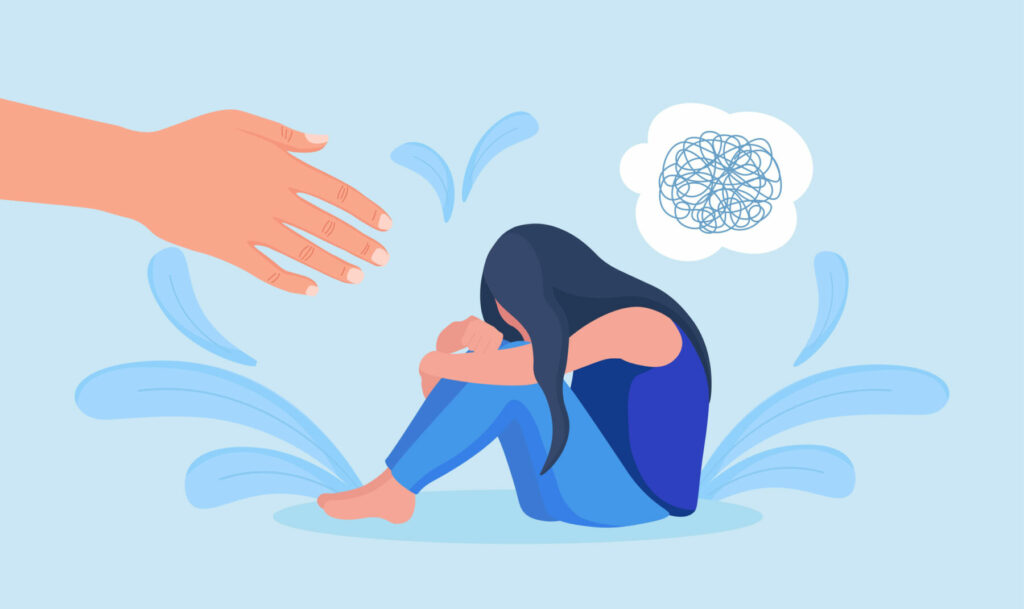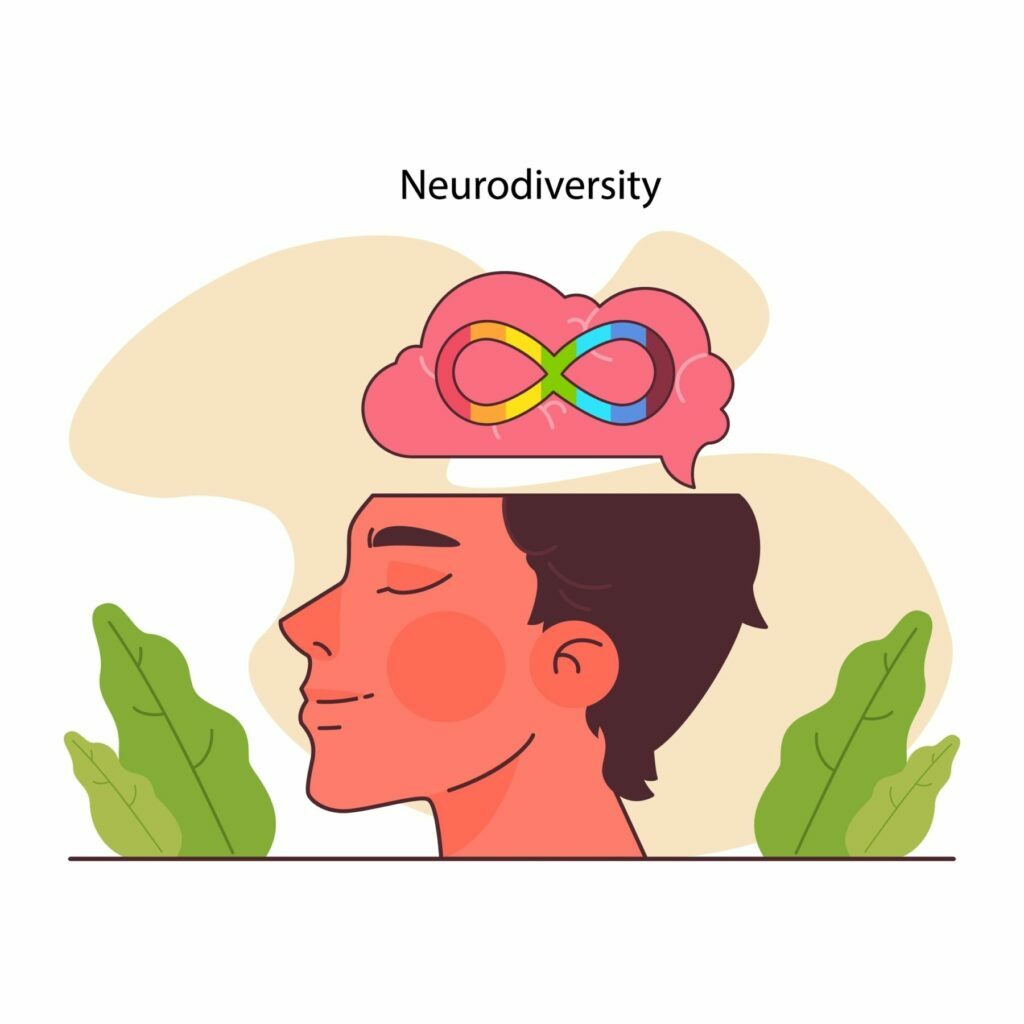LGBT Grief Counseling Techniques and Benefits

Grief is a universal experience, yet it manifests uniquely in each individual’s life. It’s a natural response to loss, profoundly impacting our emotional, physical, and psychological well-being. However, for the queer and LGBT people, grief often comes with additional challenges and complexities. Let’s explore the world of LGBT grief counseling, highlighting its importance, techniques, and benefits.
Grief: A Universal Yet Individual Experience
At the heart of grief therapy is the understanding that while grief is a universal experience, it manifests uniquely in each person’s life. Grief therapy, therefore, aims to provide a personalized approach to help individuals navigate through their journey of loss and healing.
Grief, a complex and deeply personal experience, can be understood through various models, including the renowned stages of grief outlined by Kubler-Ross: denial, anger, bargaining, depression, and acceptance. These stages provide a framework for comprehending the emotional turmoil often associated with grief, though it’s crucial to acknowledge that grief does not adhere to a linear path.
A competent grief therapist understands the impact of grief is substantial, affecting an individual’s mental health, relationships, and daily functioning. The nature and intensity of grieving often depend on the circumstances surrounding the loss, whether it’s the death of a partner, friend, or family member.
Each grief experience is valid and significant, manifesting in diverse ways, such as openly sharing feelings or engaging in activities to divert attention from the pain. In certain cases, grief can evolve into a more severe form known as complicated grief, characterized by extended, intense distress, necessitating grief therapy.
Consider this tip from a grief therapist at Tandem Psychology – work to not underestimate any form of grief; each person’s journey through loss is unique and worthy of recognition and support.
The Unique Grief Journey in the LGBT Community
Research by Bristowe and colleagues (2016) underscores that queer and LGBT people often face additional burdens in grief. These may include societal stigma, discrimination, and the non-recognition of their relationships and chosen families.
The uniqueness of the queer experience necessitates a specialized approach in bereavement care and grief therapy tailored to address these unique challenges (e.g., LGBT grief counseling).
Disenfranchised Grief – LGBT individuals often face disenfranchised grief, where their loss and mourning are minimized or not recognized. This is particularly evident in the lack of acknowledgment of the importance of LGBT relationships and chosen families, which play a crucial role in many LGBT individuals’ lives. The alienation, ignorance, or dismissal of these relationships in bereavement can exacerbate the grieving process. Pursuing an LGBT therapist or specialist in LGBT grief counseling can minimize the risk that your grief will be disenfranchised.
The Multiplicity of Grief – Queer and LGBT people have faced unique collective grief experiences, notably during the HIV/AIDS epidemic, where many lost numerous loved ones in a short period. Additionally, the higher instances of suicide and substance abuse among people who identify as LGBT can trigger previous grief, creating a layered and complex grieving process.
Consider the case of Alex, a young non-binary individual who recently lost their partner, Jordan, in a tragic accident. Jordan and Alex were in a committed, non-monogamous, relationship. Their bond was deep, with Jordan being Alex’s primary source of emotional support, especially in navigating the challenges of societal stigma related to their queer identities. However, Jordan’s family, who never accepted their relationship, excluded Alex from the funeral arrangements and disregarded their grief as insignificant.
In this situation, Alex faces a multi-faceted grieving process. They are not only dealing with the profound loss of their partner but also grappling with the lack of recognition and support from Jordan’s family and society at large. This disenfranchised grief – where their relationship and pain are not acknowledged – can lead to feelings of isolation, anger, and profound sadness.
LGBT Grief Therapy: Techniques and Benefits
What is LGBT Grief Counseling?
LGBT grief counseling is a specialized form of grief therapy that addresses the unique needs and challenges faced by LGBT and queer people in their grieving process. It differs from traditional grief therapy by incorporating an understanding of the specific issues and stigmas faced by LGBT individuals and is often offered by an LGBT therapist.
Techniques Used in LGBT Grief Counseling
Various approaches can be adapted to the unique needs of queer and LGBT people. Some include:
- Cognitive-Behavioral Therapy (CBT): This approach helps individuals identify and challenge negative thought patterns related to their grief. By restructuring these thoughts, LGBT individuals can better cope with feelings of loss, guilt, or anger that may be more pronounced due to societal stigma or personal circumstances.
- Mindfulness-Based Techniques: These techniques focus on bringing awareness to the present moment, helping individuals manage intense emotions associated with grief. An LGBT grief counselor may suggest mindfulness for queer people who are experiencing heightened anxiety or stress due to societal pressures or trauma linked to their identity.
- Narrative Therapy: In narrative therapy, a grief therapist will encourage individuals to share and reshape their personal stories of loss. This can be empowering for LGBT individuals as it allows them to reframe their experiences, including how they perceive their identity and relationships within the context of grief.
- Art Therapy: Art therapy offers a non-verbal mode of expression which can be incredibly therapeutic. It allows queer and LGBT people to explore and express complex emotions related to grief, which might be challenging to articulate in words. This form of therapy can be particularly helpful in expressing feelings about lost relationships that were not publicly acknowledged or accepted.
- Relational Therapy: This therapy focuses on the impact of relationships on an individual’s grieving process. For many queer and LGBT people, the loss can involve significant others, chosen family, or community members. Relational therapy, often a foundational intervention for an LGBT therapist, helps address the complexities of these relationships and the unique grief that accompanies their loss.
- EMDR (Eye Movement Desensitization and Reprocessing): EMDR is effective in processing trauma that may be intertwined with grief. For LGBT individuals, this could involve traumatic experiences related to their identity or the circumstances of their loss. EMDR helps in reducing the emotional distress associated with these traumatic memories.
- Support Groups: LGBT-specific support groups provide a sense of community and shared experience. They offer a space where individuals can share their grief journey with others who understand the unique challenges they face. These groups can be a source of comfort, validation, and mutual support.
Benefits of LGBT Grief Counseling
- A Safe and Supportive Environment: LGBT grief counseling offers a space where individuals can express their grief without fear of judgment or misunderstanding. This environment is crucial for those who might have faced discrimination or lack of recognition in other aspects of their lives.
- Recognition of Queer-Specific Grief: LGBT grief counseling acknowledges and addresses the unique challenges and complexities of grieving as an LGBT individual. It validates experiences that might be overlooked or misunderstood in other contexts.
- Validation of Emotions: It provides a space where all emotions are seen as valid and important. This is particularly significant for those who may have had to conceal their relationships or whose grief has been marginalized.
- Coping Strategies: LGBT grief counseling equips individuals with tools and strategies to navigate their grief. This includes managing feelings of isolation, dealing with societal stigma, and finding ways to honor and remember lost loved ones.
- Connection with Others: Being part of a community or group that understands and shares similar experiences can be incredibly healing. It helps reduce feelings of isolation and fosters a sense of belonging.
- Improved Mental Health: The counseling process can help mitigate the risks of mental health issues such as depression, anxiety, and complicated grief, which can be more prevalent in the queer and LGBT populations due to additional stressors these groups face.
- Improved Relationships: By working through grief, individuals can learn how to better communicate and relate to those around them. This can lead to stronger and more supportive relationships in their personal and professional lives.
Limitations and Considerations
While LGBT grief counseling offers numerous benefits, it’s essential to acknowledge its limitations. Access to specialized LGBT grief therapy can be limited in certain geographic areas. Stigma and discrimination can still be prevalent, and the cultural competence of therapists can vary.
Additionally, the diversity and intersectionality within the LGBT population mean that a one-size-fits-all approach is not feasible. For these reasons, Tandem Psychology has committed to establishing robust LGBT therapy competence in our team.
Getting Started with an LGBT Grief Therapist
It’s important to find a therapist with whom you feel comfortable and who demonstrates an understanding of the unique aspects of queer and LGBT grief. Our team at Tandem Psychology recognizes the unique bereavement challenges of queer people and is committed to meeting these needs.
Consider setting up an appointment, whether you know exactly what you’re looking for or just have a general sense that some support could help. Remember, seeking support in times of grief is a sign of strength and a step towards a more well version of yourself.
This blog is made for informational and educational purposes only. It is not medical advice. The information in this blog is not intended to (1) replace a one-on-one relationship with a qualified licensed health care provider, (2) create or establish a provider-patient relationship, or (3) create a duty for us to follow up with you.



